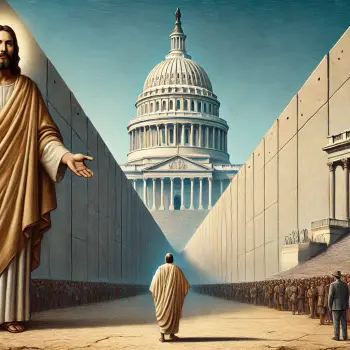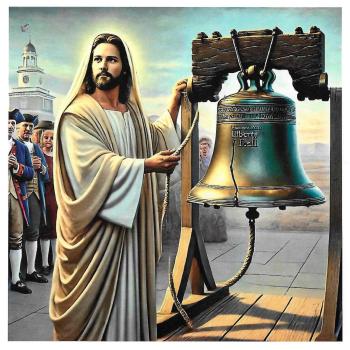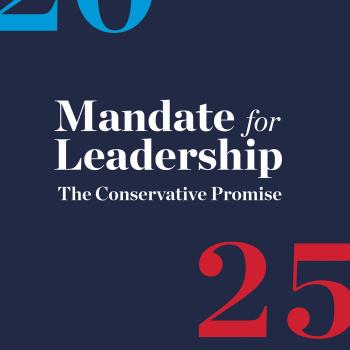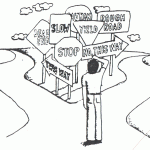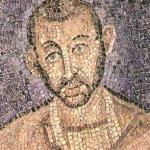Just, Sustainable, Participatory, and Planetary.
PT 3015. Common Good Part Five

Let’s open with a song. A hymn, actually. Brevard College theologian Mary Louise Bringle gave us the lyrics to “Commonwealth is God’s Commandment.” Here’s the theme that inspires the point of this Patheos post: “common good is holy ground.”
Commonwealth is God’s Commandment; common goods are meant to share.
Tables set and doors wide open welcome angels unaware.
Plead for peace of all creation. Pray for a place where grace is found.
Shanti, pax, shalom, maslaha: common good is holy ground.
After demythicizing–that is, after myth-busting–the myth of economism, we are now ready to wrap up our series of five posts on the Common Good. Recall the two stones we added to King David’s sling shot when doing battle with Goliath the Giant. The first stone was discourse clarification to make transparent the religious–even mythical–dimension of economism in our culture. Now, the second stone is to construct a worldview with a moral orientation toward the global common good: to envision a just, sustainable [1], participatory, and planetary society.
“Our common good is inextricably bound up in the good of the rest of the planet,” says former U.S. Secretary of Labor, Robert Reich (Reich, The Common Good 2018, 29).
The common good I envision is global. Elsewhere I have explored the possibility of a galactic common good. But, for our purposes here, I’ll be quite satisfied with a planetary common good.
This series has been an exercise in public theology. Public theology, says Toine von den Hoogen at Nijmegen University, “is that it is the form of theological investigation which is aimed at the modern media mediated complexes of meaning which arise in the construction of world views and cultural zones from the fusions between religion and culture, religion and economics, and religion and politics” (Hoogen 2019, 10). In order to pursue this agenda, I recommend that the public theologian pursue two tasks: discourse clarification and worldview construction. After a series of posts of discourse clarification, here I will turn indirectly to worldview construction in terms of the common good.
Politics vs Common Good Governing. Common Good Part One
Demythicizing the Myth of Economism. Common Good Part Two
Demythicizing the Myth of Economism. Common Good Part Three
Ecotheology when “it’s time to act”
Public Theology for the Common Good
Demythicizing the Myth of Economomism. Common Good Part Four
Just, Sustainable, Participatory, and Planetary. Common Good Part Five
The public theologian seeks to modify if not reorient beliefs held firmly in the church of economism. A reformation, maybe? As we have demonstrated in previous posts, the tenets of economism’s belief system pit the greed of all against all, precluding solidarity on behalf of the global common good. The public theologian must search out those persons of good will in our world to lift up a vision of a just, sustainable, participatory, and planetary society.
The Anthropocene, Capitalocene, or Econocene?
Here are the symptoms of the global disease described by Rita Sherma, Dharma scholar at the Graduate Theological Union.
“Catastrophic wildfires across the planet, extreme weather patterns that destroy homes and histories, degraded soil, toxic air, unsafe water and the desecrated beauty of places we have loved are causing climate trauma and eco-anxiety. For those who are acutely aware of the cliff edge on which we stand as a species and as a planetary community, the despair evoked by the magnitude of the disaster is almost unbearable.” (Sherma, 2015, 359)
Sherma and the rest of us know these symptoms: rising global temperature, melting glaciers, species diebacks, oceans beset with floating plastic, nuclear waste spills, and countless eco-calamities. “If we continue on our present paths, future generations, if there are to be any, are condemned to misery” (H. E. Daly 1989, 21).
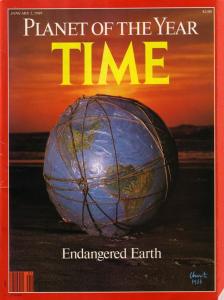
Those are the symptoms. Would it help in the diagnosis to dub our geological era the Anthropocene? With this term we can see that the eco-crisis includes an anthropogenic cause. However, the growing use of the term, anthropocene, is meeting with resistance. Critics ask rhetorically, should this term describe an entire geologic period?[2]
What are the objections to the term, anthropocene? First, it connotes hubris. To name an entire geologic era after ourselves overrates our significance. “It was just such a anthropocentric worldview that got us into this predicament in the first place,” complain the editors of Scientific American (Editors 12/2018). Secondly, “‘Anthropocene’ implicitly blames the entire human race for a crisis caused by a relative few.” Conversation about the anthropocene era, thirdly, tends to hold human nature, not just polluting human beings, as responsible. This makes little sense to anthropologists, who note that people can make decisions and take actions leading to changed behavior. We are not condemned by our nature to destroy ourselves by polluting ourselves.
So, what’s the alternative? Try Capitalocene, proposed by Andreas Malm. It was capitalism that developed the “economic system predicated on perpetual territorial expansion….capitalism established global systems of manufacturing and trade that consumed nature at unprecedented rates and is only now bumping against planetary boundaries” (Editors 12/2018).
Whether anthropocene or capitalocene or econocene, the term matters less than the global crisis facing the present generation. The global environmental crisis is difficult to diagnose because it’s shrouded within the myth of economism. So, if the term, capitalocene, demythicizes the myth, we could count it as an accurate diagnosis. With such a diagnosis, could we prescribe a cure?
Two Inconvenient Questions
Former U.S. Vice President Al Gore described the ecological challenge with its counterpane of economism as the “Inconvenient Truth.” An inconvenient truth is hidden before our very eyes.
Here are two ethical questions hidden beneath the counterpane of the mythically structured religion of economism with its greed creed: (1) should the rich help the poor? (2) does a vision of the common good compel a human response?
Roman Catholic ethicists have long held before our eyes a vision of the common good. According to the Catechism of the Catholic Church §1906, By common good is to be understood “the sum total of social conditions which allow people, either as groups or as individuals, to reach their fulfillment more fully and more easily.” The common good is inclusive, not exclusive.
But, because economism functions as a myth in contemporary society, economism invisibly admits into public discourse only selected pathways to thinking while excluding others. Like a magician hiding the pea under a walnut shell, the common good is removed from view. These two inconvenient questions are systematically filtered out by the myth of economism.
Should the rich help the poor?
Regarding the first question–should the rich help the poor?—Christians answer with a resounding, “yes.” Patheos columnist, Vance Morgan, reminds us in his 2022 Labor Day post on “Jesus and Capitalism” that “everything we have is a gift, and that the only possible response to such generosity is to channel the generosity outward.”[3]
Writing in 1895, pioneer public theologian Abraham Kuyper (1837-1920) declared Jesus’ preferential option for the poor. “Christ opposes the social dominance of money, that he seeks to temper sinful inequality, and that he aligns himself not with the great but with the little folk on earth” (Kuyper 2022, 89).
The preferential option for the poor still obtains a century and a quarter later. According to Thomas Crisp, “affluence carries in its train substantial obligation to care for the suffering. Pursuit of extravagance, luxury, and frill while others are at serious risk of suffering and death from lack of food, shelter, and medical care is wrong. So too with the love command: according to it, pursuit of extravagance, luxury, and frill while others are at serious risk of suffering and death from lack of food, shelter, and medical care is wrong.” Thomas Crisp, avers Progressive Christian columnist Keith Giles, helps in “Finding a Cure for My Affluenza.”
Eco-justice and economic-justice are as interrelated as bees and flowers during pollination. Jacob Thomas, editor of India’s Pax Lumina, reminds us that “80 per cent of global carbon emissions, one of the main causes of global warming, is caused by the developed countries of the world. At the same time, the consequences of climate change affect the poor and the marginalized disproportionately and harshly, especially in the short term. In the long run, the future of the planet becomes endangered.” We can expect the global Christian community to stand up for economic justice, can’t we?
The U.S. Conference of Catholic Bishops clearly embraces an affirmative doctrine in its 1986 pastoral letter on “Economic Justice“: §16 “All members of society have a special obligation to the poor and vulnerable.”
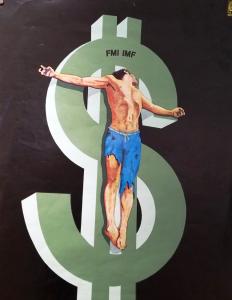
In its 1999 social statement, “Sufficient, Sustainable Livelihood for All,” the Evangelical Lutheran Church in America adds, “The rich are expected to use wealth to benefit their neighbors who live in poverty here and throughout the world.” In short, this inherent obligation of all society’s members to care for the poor and vulnerable is obfuscated if not obliterated by the myth of economism. In order to ask whether the rich should aid the poor, one must step out of the myth of economism and enter the framework of theology.
When a Christian theologian weighs in, more is at stake than mere equity or justice. Our consciousness of perceiving divine grace in the depth of our materiality is at stake. The material world cannot be reduced to costs and benefits. At bottom, what we exchange in the market is a gift of divine grace. At least according to Edd S. Noell and Steven L.S. Smith.
“First and foremost, markets directly promote greedy and immoral behavior by allowing it and letting people profit from it. Markets encourage individuals to think of transactions involving goods, services, customers, and hires as, well, “transactions”—commodified relationships, occasions for extracting gain from others—when in Christian terms such exchanges are, at bottom, relationships of love and gift, and should be treated as such.”
For the Christian economist, our underlying motive for economic justice is rooted in gratitude for divine grace.[4]
Should we lift up a vision of the common good?
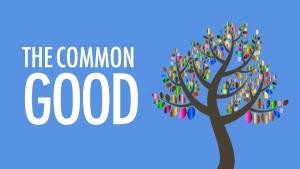
Our second question–does the vision of the common good compel a human response?–is also frustrated by the myth of economism. Again, the U.S. Conference of bishops weighs in.
- 115. The common good may sometimes demand that the right to own be limited by public involvement in the planning or ownership of certain sectors of the economy. Support of private ownership does not mean that anyone has the right to unlimited accumulation of wealth.
- 125. The Christian vision is based on the conviction that God has destined the human race and all creation for “a kingdom of truth and life, of holiness and grace, of justice, love, and peace.”
Or, in the words of Herman Daly and John Cobb, “”the well-being of a community as a whole is constitutive of each person’s welfare” (H. E. Daly 1989, 164). With this presupposition, Cobb makes clear that liberal Christian theology dedicated to the common good requires an alternative economic framework. “Liberal theory tends to use double images of human beings. There is Homo economicus, on the one hand, who rationally calculates private economic advantage. Then there is another kind of rationality of public servants who are dedicated to the common good” (Cobb, Process Theology as Political Theology 1982, 102). On behalf of the common good, the rich should help the poor while caring for the planet.
Planetary Solidarity
Concern for climate justice is urgent. The planet is in peril. Those who are marginalized by the global economy feel the peril first. The seventh president of Ireland and UN High Commissioner for Human Rights from 1997-1992, Mary Therese Winifred Robinson, draws a map of the injustice. “Those suffering the worst effects of climate change: drought-stricken farmers in Uganda, a president struggling to save his sinking island South Pacific Island nation, Honduran women pleading for water. They come from communities that are the least responsible for the pollution warming our planet, yet they are the most affected” (Robinson 2017, 2). Planetary health and human equality, like a Maple tree and a birds’ nest, belong together.
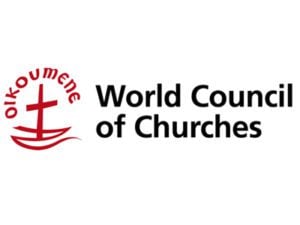
Since 1979 the World Council of Churches has lifted up a trichromatic vision of a just, sustainable and participatory society. To this list, I add planetary.
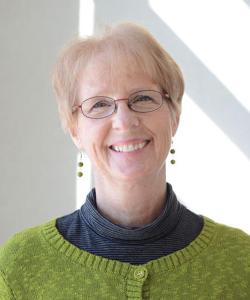
The political theologian needs to cultivate planetary solidarity.[11] According to Heather Eaton, planetary refers to “this interactive, infinitely dynamic, complex sphere of life that characterizes planet Earth….The first, and primary, meaning of planetary is the biosphere” (Eaton 2017, 20). The second meaning of planetary, I believe, is that the entire human race constitutes a single community of moral deliberation. Planetary implies solidarity. “Solidarity means active resistance to oppression and constructive efforts for justice and equality” (Eaton 2017, 21).
The responsibility of a just, sustainable, participatory, and planetary society is to pave the highway to distributive justice aimed as a vision of the common good. But the free market on its own is unable to do the paving.[5] In short, access to the common good–the high good for all individually and collectively–requires guidance by a government or other center of power apart from the market. If the myth of economism will not permit asking questions regarding the poor or the common good, then public theologians along with other peoples of good will must ask this question within public discourse.
Like trying on a shoe to see if it fits, the public theologian will try on the sin-repentance-renewal model to see if it fits the ecological crisis. We must repent from the sin of economism. This is what the Green Patriarch–His All-Holiness Ecumenical Patriarch Bartholomew –contends in effect. “The highest pursuit of humanity is not economic enrichment or economic expansion…We cannot live by economic development alone, but we must seek…the values and principles that transcend economic concerns. Once we accept this, the economy becomes a servant of humanity, not its master.” To make the sin of economism visible, we need such a prophetic critique.
A Prophetic Critique of Economism
When demythicising the myth of economism, we first expose a pair of problems: social injustice combined with lack of responsibility for planetary health.[6] “Our socio-economic model,” avers Graham Peebles writing for the esotericist journal, Share International, “is a decrepit global system propped up by the guardians of the status-quo, who are intellectually bankrupt, have no answers to the issues of the day but, desperate to cling on to power, use all their tools of control to resist change” (Peebles 12/2018, 4). What is missing in what I dub the myth of economism is “the principle of sharing,” argues Peebles. What we need is “a shift…to a sustainable, participatory, and just way of living” (Peebles 12/2018, 5).
When demythicising the myth of economism, we uncover a still deeper problem: idolatry.[7] The market now functions as a substitute god. In Laudato Sí, Pope Francis identifies the problem posed by idolatry as he struggles to lead our planet toward a new vision of the common good, a vision of Earth as our common home.
- 56. In the meantime, economic powers continue to justify the current global system where priority tends to be given to speculation and the pursuit of financial gain, which fail to take the context into account, let alone the effects on human dignity and the natural environment. Here we see how environmental deterioration and human and ethical degradation are closely linked. Many people will deny doing anything wrong because distractions constantly dull our consciousness of just how limited and finite our world really is. As a result, ‘whatever is fragile, like the environment, is defenseless before the interests of a deified market, which become the only rule’.[8]
Standing in the way of a healthy relationship between the human race and Planet Earth is the idol, the deified market.

In their opposition to idolatry, prophets are in the business of projecting a vision of a transformed future which renders judgment against the unrealistic delusions governing the present. Sallie McFague reminds today’s prophet “to suggest some visions of the good life that are not consumer dominated, visions that are just and sustainable” (McFague 2008, 95). Such a vision of God’s promised future has been lifted up by the ancient prophet Isaiah in the passage we’ve come to think of as the “Peaceable Kingdom.”
Isaiah 11:6-9: The wolf shall live with the lamb, the leopard shall lie down with the kid, the calf and the lion and the fatling together, and a little child shall lead them. The cow and the bear shall graze, their young shall lie down together; and the lion shall eat straw like the ox. The nursing child shall play over the hole of the asp, and the weaned child shall put its hand on the adder’s den. They will not hurt or destroy on all my holy mountain; for the earth will be full of the knowledge of the LORD as the waters cover the sea. (NRSV)
In his “Church of Economism and its Discontents,” Richard Norgaard similarly envisions a peaceable kingdom in the future, a kingdom which will arrive beyond the transition he is calling for. The success of this reformation of the religion of economism…
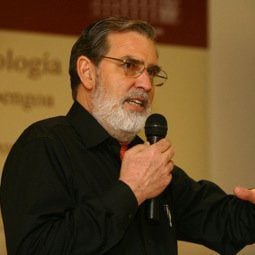
“…will depend on a diverse collection of efforts, including urging negative population growth, supporting sustainable consumption and degrowth, promoting the commons paradigm, working with religion to foster an ethic for an equitable and sustainable planet; furthering justice, improving the sciences; promoting agroecology; facilitating local markets, encouraging progressive forms of corporate ownership, governance, and practice, and warning of limits, and the possibilities of tipping points.” (Norgaard 2015)
The hinge on which the prophetic critique of economism swings is eschatology. God’s eschatological promise becomes the criterion for judging the inadequacy of economistic utopianism. The element of prophetic eschatology is what gives to political theology its critical bite and its hopeful promise for a transformed future. Because of this future orientation, the transformation the prophetic activist seeks will be a new one rather than a return to a previous state.
Multi-Religious Solidarity
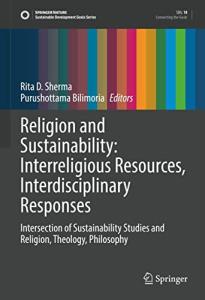
Christian prophets, Gott sei dank, are greeted warmly by colleagues and friends around the globe expressing faith borne by a variety of religious traditions. My Berkeley colleagues, Rita Sherma and Purushottama Bilimoria–of whom I’m very proud–have just edited a new volume, Religion and Sustainability. At the Dharma Center at the Graduate Theological Union, they are assembling and offering resources for the Sustainability 360 Initiative. To be planetary is to be multi-religious.

What might Christians contribute to the multi-religious partnership? Perhaps the prophetic anticipation of the new creation. On the basis of our vision of the new creation, we an proleptically incarnate the new while still within the old. The founder and former director of the Center for Theology and the Natural Sciences (CTNS) at the Graduate Theological Union, Robert John Russell, lifts up an apocalyptic vision of an eschatological family of life on earth. To get there from here, we offer the wider culture a prophetic vision of God’s coming new creation. “Prophetic eschatology offers a frame for our renewed commitment to challenging global climate change as a generalization of all those liberation theologies which lift up the oppressed in human society and offer them real hope while challenging their oppressors of all kinds”(Russell, 2022, 355).
From Revoloution to Provolution
Not revolution, but rather provolution inspires the prophetic Christian public theologian. Words that begin with re such as revolve or reform or revive all suggest a circular return, a retrieval of something past. Yet, because the eschatological God in whom Christians place their hope creates new things, the novum, we can place our hope in a future that is genuinely new. Jürgen Moltmann replaces revolution with provolultion so as to anticipate the new that is coming. “In provolution, the human dream turned forward is combined with the new possibility of the future and begins consciously to direct the course of human history as well as the evolution of nature” (J. Moltmann, Religion, Revolution, and the Future 1969, 32). The prophetic political theologian relies on a faith commitment, namely, God’s future is open to what will be new. “‘Future’ must mean ontological possibility and anthropological freedom” (J. Moltmann, Hope and Planning 1971, Chapter 14).

Cobb has less hope than Moltmann, yet he still recognizes the potential for newness and transformation the future provides. “We stand…before a radically open future with no assurance that our efforts for justice will succeed or even that human history will long continue” (Cobb, Process Theology as Political Theology 1982, 78).
After demythicizing economism, the prophetic public theologian raises up a vision of a future Planet Earth that is healthy, fecund, and sustainable. Today’s eco-ethicist can place confidence in this future by working backward from a vision of the eschatological kingdom of God where the common good of the cosmos obtains. Here is the way two theological eco-ethicists put it: “Christians are called to live in a way that announces the future kingdom of God, and to model the reality that, at least in part, the kingdom of God is here already, while realizing that it will only be brought about completely by the decisive intervention of Christ’s return” (Spencer 2007, 95).
The Common Good as Middle Axiom
On the one end, we approach the problem of economism from faith-active-in-neighbor-love. On the other end, we approach the same problem prophetically from our vision of God’s eschatological kingdom. What we need is a middle axiom that bridges the gap between these two highly generalized anchor points, on the one hand, and to public policy and practical action, on the other. A middle axiom would bridge the eschatological promise that God’s judgment must prevail with the courage we need now to countervail. Although it does not come in axiomatic form, I recommend we use the common good to construct our bridge. Here’s the common good as His Holiness Pope Benedict XVI pens it in Caritas in Veritate (2009).
- 7. To love someone is to desire that person’s good and to take effective steps to secure it. Besides the good of the individual, there is a good that is linked to living in society: the common good. It is the good of all of us, made up of individuals, families and intermediate groups who together constitute society. It is a good that is sought not for its own sake, but for the people who belong to the social community and who can only really and effectively pursue their good within it. To desire the common good and strive towards it is a requirement of justice and charity.”[9][10]
Christians can thank the non-Christian thinker, Cicero, for prompting the idea of the common good for a republic such as Rome: “a people is not any collection of human beings brought together in any sort of way, but an assemblage of people in large numbers associated in agreement with respect to justice and a partnership for the common good” (Cicero, De republica 1, 25, 39).
Four centuries later, Augustine turned Cicero’s concept of the common good into a middle axiom to connect the City of God with the cities we actually live in. A true republic “cannot be governed without the most absolute justice,” writes Augustine in The City of God. Because justice has never reigned in Rome, Rome has never been a republic in the full sense of the term. “The fact is, true justice has no existence save in that republic whose founder and ruler is Jesus Christ” (Augustine n.d., II.21).
What legacy does Augustine leave us? On the one hand, it is reasonable to expect a high functioning society could be oriented around justice and perhaps even love while, on the other hand, it would be too much to expect that such a society would itself constitute the kingdom of God. “Following this definition,” comments David Hollenbach, “the quality of the life of a people will be directly proportional to the qualities of the loves they share in common. Societies united by great and noble loves and dedicated to high standards of justice will be superior to those with lower goals and cultural values” (Hollenbach 1989, 83).

Hollanbach builds the bridge with the middle axiom we’re looking for when he describes the healthy tension between a pluralistic society and the common good it shares. “One can draw principles that support the legitimacy, indeed the necessity, of institutional pluralism. None of the concrete forms of human community in history, be they familial, associational, economic, political, or religious, are capable of embodying the summum bonum, the full human good. Only the kingdom of God can do that. This theological affirmation has a political correlate. None of these historical forms of community can exhaust the temporal, this-worldly common good either. The historically achievable common good will demand that the pluriformity of human community be respected, and such respect should be institutionalized politically, legally, and economically” (Hollenbach 1989, 93). In short, our vision of the eschatological kingdom of God stands before us as a beacon, guiding us toward the common good even if today and tomorrow we fail to realize it in its fullness.
One knotty problem that persists for us is the connection between cultural pluriformity and social unity.[11] More. Social harmony must include not only human pluriformity but the biosphere as well. Christine Fire Henze reminds us that the common good requires inclusion of our entire planet. “Feminist economics seeks to accurately and justly relate care and market economies; ecological economics works to connect market and natural economies by reframing market theory and practice in light of the finitude, noncommodifiability, or nonsubstitutability (by capital or technology) of land, biota, biosphere, and natural resources” (Hinze 3/2011, 168). Then, “here Catholic commitments to solidarity with the poor and a decent livelihood for all complement the commitments of ecological economists” (Hinze 3/2011, 169).[9] Solidarity with the poor and the planet becomes a proleptic manifestation in the present of the eschatological justice promised by God.
Formulating a middle axiom between an eschatological vision and practical possibilities prompts Lutherans to follow with a plan of action wherein the church becomes a cultural and, indirectly, an economic leaven in the larger social loaf. Here’s what we find in the ELCA Social Statement, Economic Life.
We commit ourselves as a church to: • hire without discriminating on the basis of race, ethnicity, gender, age, disabilities, sexual orientation, or genetic factors; • compensate all people we call or employ at an amount sufficient for them to live in dignity; • provide adequate pension and health benefits, safe and healthy work conditions, sufficient periods of rest, vacation, and sabbatical, and family-friendly work schedules; • cultivate participatory workplaces, support the right of employees to organize for the sake of better working conditions and to engage in collective bargaining, and refrain from intentionally undercutting union organizing activities, or from permanently replacing striking workers.
Such policies represent a finite proleptic or anticipatory participation today in the future promised by God.
A Reformation for the Religion of Economism
The spoils of our spiritual war are a just, sustainable, participatory, and planetary society oriented around the common good. Or, as Indian theologian Kuruvilla Pandikatu, inspired by Pope Francis’ Fratelli Tutti, puts it: “Hope for a just, egalitarian, and love-filled world! A morally just world! A world of care, concern, and compassion, especially for the weak and vulnerable!” (Pandikattu 2022, 181). That’s the public theologian’s vision. What stands between us and this vision is the shadow of a Goliath, namely, the myth of economism.

When loading our sling to fight the giant whose rhetoric diverts our attention away from the threat of planetary self-obliteration, must we choose between either economics or ecology for allies? Why not both? According to John Cobb, it appears at first that we must choose. But, then, he suggests we might get both. “More and more people have been blaming climate disasters and other ecological problems on capitalism itself. For corporate leaders to continue to support persons who reject the scientific consensus that greenhouse gases are a major factor in climate change adds fuel to the fire of anti-capitalism. It is in the interest of the financial elite to show the world that a response to this crisis, narrowly defined, can be consistent with capitalism” (Cobb, Preface 2015, iii).Despite the apparent rift between the market and the planet, Cobb nevertheless offers a glimmer of hope that a reformation within economism might expand our present myth to include the health of the planet’s biosphere. Perhaps both economics–reformed economics–and ecology could ally with the common good.
David Brooks, author of The Road to Character and The Second Mountain, like Cobb does not advocate the revolutionary overthrow of capitalism. Rather, the mature individual should work to supplement our economic system with compassion and community.
“The relationalist doesn’t walk away from the capitalist meritocracy, the systems of mainstream life. But she balances that worldview with a countervailing ethos that supplements, corrects, and enobles” (Brooks 2019, 304).
Regardless of whether Cobb and Brooks are right, we must still ask: how should the prophetic activist initiate resistance to the religious myth of economism? Before we fire the revolutionary shots, we need to get clear on the analysis. Richard Norgaard has provided us with a protean metaphor for analyzing economism as a religion in need of reformation. We immediately feel the threat in Norgaard’s point: the economic mind-set is so powerful that traditional moral thinking is dwarfed and squashed and even discarded. Economism is not only a force in the world but also within our soul.
The problem within economism which cries out for reform is found in both its form and substance. The amoral form of economism is found in the categories it imposes on our thinking, on our false consciousness: everything becomes subjected to cost-benefit categories, thereby marginalizing the tender values of intimacy, caring, sharing, and building. Similarly, the amoral substance of economism fosters just the opposite of what the Christian religion advocates: greed instead of charity, individual freedom without responsibility for the common good, anarchy without unity. If economism is in fact a religion, then it needs at least a reformation if not a supersession.
Conclusion
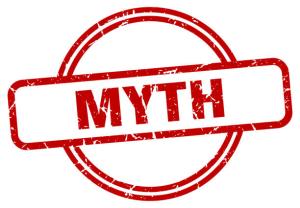
After having said this, in my judgment, the term myth more accurately describes what Norgaard is talking about. With the term myth I refer to a conceptual set, a set of presuppositions which frame the suppositions of a theoretical or existential scheme. The myth frames data that reinforces an assumed worldview, perspective, or ideology. According to this definition, a myth is not a story per se. Rather, it’s a commitment held at the level of presupposition rather than stated. The myth of economism has become the myth of the America Dream, the myth of the worldwide media, the myth within which national and international questions are formulated and decisions are made.
What the public theologian–in this case, the critical theologian of culture engaged in discourse clarification–needs to do is demythicise.[12] In common parlance this is known as myth-busting. Recall how Rudolph Bultmann employed a similar term when referring to biblical exegesis. “Its [de-mythologizing] aim is not to eliminate the mythological statements but to interpret them. It is a method of hermeneutics” (Bultmann 1958, 18). Rather than demythologize scripture, I recommend we demythologize economism. That is, we should identify the existential meaning along with the dimension of ultimacy presupposed in economism’s doctrines. Then, we should demythicize economism. We should so shock modern consciousness that the myth of economism becomes transparent to its own lack of moral foundation. By taking away its mythical status, we would deprive it of its sacral power.[12] First, we demythologize economism. Second, we demythicize economism.
Public theologians along with ethicists of all stripes should marshal their respective insights to separate out the idolatrous religion of economism from those other cultural mythologemes of neighbor-love. The secular religion of economism is ready for reformation, perhaps even supersession.
Our society needs economic theory, to be sure; but we don’t need a pseudo-religion parading as a scientifically validated economic policy. This is to say, the church’s prophetic task is to take the myth apart, examine its pieces, select what is salvageable, and then re-contextualize all of this within a healthier worldview that draws its meaning from a vision of the common good. This would constitute the reformation of economism, for Earth’s sake.
Perhaps we could close with some words of assurance once penned by John Cobb. “In conclusion…be faithful, affirm life, have confidence, stand fast in a Christian vision of reality, enter more deeply into Christian existence, be assured” (Cobb, Liberal Christianity at the Crossroads 1973, 97).
▓
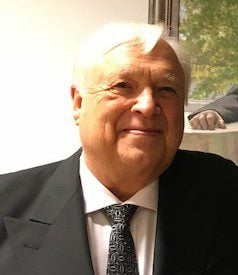
Ted Peters pursues Public Theology at the intersection of science, religion, ethics, and public policy. Peters is an emeritus professor at the Graduate Theological Union, where he co-edits the journal, Theology and Science, on behalf of the Center for Theology and the Natural Sciences, in Berkeley, California, USA. His book, God in Cosmic History, traces the rise of the Axial religions 2500 years ago. He previously authored Playing God? Genetic Determinism and Human Freedom? (Routledge, 2nd ed., 2002) as well as Science, Theology, and Ethics (Ashgate 2003). He is editor of AI and IA: Utopia or Extinction? (ATF 2019). Along with Arvin Gouw and Brian Patrick Green, he co-edited the new book, Religious Transhumanism and Its Critics hot off the press (Roman and Littlefield/Lexington, 2022). Soon he will publish The Voice of Christian Public Theology (ATF 2022). See his website: TedsTimelyTake.com.
This fictional spy thriller, Cyrus Twelve, follows the twists and turns of a transhumanist plot.
▓
Notes
[1] What does ‘sustainable’ mean? It refers to “development that meets the needs of the present without compromising the ability of future generations to meet their own needs” (World, 1987).[2] Anthropogenic evil is “evil that arises indirectly through the growth in human populations, industrialization and the economy, leading to the production of pollutant wastes which then have devastating impacts on other species and on human populations through processes such as climate change and habitat destruction” (Deane-Drummond 2008, 116)
[3] Asking the rich to help the poor is heresy in America’s economism. Among the emerging industrial and especially post-industrial states, the U.S. stands out as the paradigm of economic inequality. This is due to political efforts on the part of the wealthy classes during the Ronald Reagan administration in the 1980s which emphasized dropping government regulations on business and breaking the back of labor unions. “The U.S. has the highest level of economic inequality among developed countries. It has the world’s greatest per capita health expenditures yet the lowest life expectancy among comparable countries” (Stiglitz 11/2018, 57).
[4] Dare we speak of a Christian economic theory? It is not written in stone that the field of economics must be secular, says Enrico Beltrami. “Scholars are so used to assume the primacy of the secular disciplines over the religious ones to forget that such a primacy is, in effect, far from being written in stone.”
[5] Economists approach this problem with the term, The tragedy of the commons, referring to “an economic problem in which every individual tries to reap the greatest benefit from a given resource. As the demand for the resource overwhelms the supply, every individual who consumes an additional unit directly harms others who can no longer enjoy the benefits.” The concept of the common good implies more than what is assumed to be merely a scarce commodity unevenly distributed.
[6] “Economic Justice.” The complementary watchwords are justice and sustainability. The first, justice, includes care for the poor, according to Roman Catholic ethicist Alison Benders. “Measuring justice in a community means examining the lives of the poorest and most marginalized from their perspective” (Benders 2015, xvii). Justice is then connected to planetary sustainability. “Just as the absence of acknowledgment of community in economic theory has led to the destruction of human community in economic practice, so also the neglect of the physical world in economic theory has led to its degradation in economic practice” (H. E. Daly 1989, 190).The second, sustainability, requires intentional planning that learns from ecomimesis, from imitating nature. “Ecomimesis is a design paradigm that uses the earth as a template. Its goal is to design a human community so that its ways of life do not interfere with nature’s inherent ability to sustain life in the earth’s biosphere and minimize disruptions to nature’s ecosystems. Its primary goals are to re-establish ecosystem stability, preserve regional biodiversity and habitats through continuity of functions and connectivity, and conserve, repair, and improve existing ecosystems” (Woo 2018, 747).
[7] In addition to the idolatry of the market, ecowomanist theologians identify the basic force at work to destroy our ecosphere as domination. The same impetus to domination at work in colonialism and white supremacy is at work in the domination of earth. Melanie L. Harris: “Rather than using normative paradigms or pathways of environmental activism, such as the dominant social, exploitative capitalist, romantic environmental, or new environmental paradigms…[ecowomanism] problematizes the conceptual base of these paradigms, based on their reliance on normative assumptions of white privilege, and exposes how the history of white supremacy is woven into the conceptual frame of ecological colonialism” (Harris 2017, 46).
[8] Pope Francis, Laudato Sí. Laudato Sí has a “number of blind spots,” contends Hindu theologian Rita Sherma. Pope Francis “refrains from speaking of the injustice of androcentrism that is the cause of the near absence of one half of the human species from leadership in religion, politics, and economics” (Sherma 2015, 360). Andrew Sung Park concurs: “this encyclical is silent on the issue of sexism” (Park 2015, 72).
[9] Bernard Laurent fears that the pontiff falls short of defending the common good because he inadequately analyzes the injustices endemic to existing economic institutions. “By framing the problem as he does, Benedict turns the Church’s focus away from the interplay of structural forces and gives primacy, as never before, to individual responsibility” (Laurent 9/2015, 515).


[12] I prefer the modern method of “demythologizing” over the postmodern method of “deconstruction,” because the latter limits itself to exposing power interests while avoiding the existential meanings uncovered by demythologizing. I believe Paul Chung gets me right when he notes, “Peters’ approach to a postmodern holism is differentiated from postmodern deconstructionism in the fashion of Jacques Derrida. Rather, holistic postmodernism aims at recovering meaning, not its deconstruction or dissolution” (Chung 2016, 131).
References
Augustine. City of God.
Benders, Alison. 2015. Just Prayer. Collegeville MN: Liturgical Press.
Birch, Charles, and John Cobb. 1981. The Liberation of Life. Cambridge UK: Cambridge University Press.
Brooks, David. 2019. The Second Mountain. New York: Random House.
Bultmann, Rudolf. 1958. Jesus Christ and Mythology. New York: Charles Scribner’s Sons.
Chung, Paul. 2016. Postcolonial Public Theology: Faith, Scientific Rationality, and Prophetic Dialogue. Eugene OR: Cascade Books.
Cobb, John. 1973. Liberal Christianity at the Crossroads. Louisville KY: Westminster John Knox.
Cobb, John. 2015. “Preface.” In For Our Common Home: Process-Relational Responses to Laudato Si, by eds John Cobb and Ignacio Casteura, i-viii. Anoka MN: Process Century Press.
—. 1982. Process Theology as Political Theology. Louisville KY: Westminster John Knox.
—. 2010. Spiritual Bankruptcy: A Call to Prophetic Action. Nashville TN: Abingdon.
—. 1999. The Earthist Challenge to Economism: A Theological Critique of the World Bank. New York: St. Martin’s Press.
Copeland, Shawn. 2005. “Body, Race, and Being.” In Constructive Theology, by eds Serene Jones and Paul Lakeland, 97-116. Minneapolis MN: Fortress Press.
Daly, Herman E. and John Cobb, Jr. 1989. For the Common Good: Redirecting the Economy Toward Community. Boston: Beacon Press.
Daly, Herman. 1988. “The Steady-state Economy: Postmodern Alternative to Growthmania.” In Spirituality and Society: Postmodern Visions, by ed David Ray Griffin, 107-122. Albany NY: SUNY.
Deane-Drummond, Celia. 2008. Eco-Theology. London: Darton, Longman, and Todd.
Doran, Chris. 2017. Hope in the Age of Climate Change. Eugene OR: Cascade.
Dorrien, Gary. 4/11/2011. “No Common Good.” The Christian Century 128:8 22-25.
Eaton, Heather. 2017. “An Earth-Centric Theological Framing for Planetary Solidarity.” In Planetary Solidarity: Global Women’s Voices on Christian Doctrine and Climate Change, by eds Grace Ji-Sun Kim and Hilda B Koster, 19-34. Minneapolis MN: Fortress Press.
Editors. 12/2018. “Rethinking the Anthropocene.” Scientific American 319:6 10.
ELCA. 2011. Genetics, Faith, and Responsibility. http://download.elca.org/ELCA%20Resource%20Repository/GeneticsSS.pdf?_ga=1.54478571.232821864.1462997417 (accessed 11/1/2016), Chicago: Social Statement.
Griffin, David. 1988. “Introduction.” In Spirituality and Society, by ed David Ray Griffin, 1-32. Albany NY: SUNY.
Harris, Melanie. 2017. Ecowomanism: African American Women and Earth-Honoring Faiths. Maryknoll NY: Orbis.
Hinze, Christine Firer. 3/2011. “Economic Recession, Work, and Solidarity.” Theological Studies 72:1 150-169.
Hollenbach, David. 1989. “The Common Good Revisited.” Theological Studies 50:1 70-94.
Hoogen, Toine von den. 2019. Public Theology and Institutional Economics. Cambridge UK: Cambridge Scholars Press.
Kim, Grace Ji-Sun, and Hilda Koster. 2017. “Introduction.” In Planetary Solidarity: Women’s Voices, by eds Grace Ji-Sun Kim and Hilda B Koster, 1-18. Minneapolis MN:: Fortress Press.
Kuyper, Abraham, 2022. On Charity and Justice: Collected Works in Public Theology. Bellingham WA: Lexham.
Laurent, Bernard. 9/2015. “Caritas in Veritate as a Social Encyclical.” Theological Studies 71:3 515-544.
Leopold, Aldo. 1946, 1986. Sand Country Almanac, Special Commemorative Edition. Oxford: Oxford University Press.
Longwood, Merle. 1973. “The Common Good: An Ethical Framework for Evaluating Environmental Issues.” Theological Studies 34:3 468-480.
Luther, Martin. 1955-1986. Luther’s Works, American Edition, 55 Volumes. St. Louis and Minneapolis: Concordia and Fortress.
May, William F. 2011. Testing the National Covenant: Fears and Appetites in American Politics. Washington DC: Georgetown University Press.
McFague, Sallie. 2008. A New Climate for Theology. Minneapolis MN: Fortress.
Merchant, Carolyn. 1980. The Death of Nature: Women, Ecology and the Scientific Revolution. New York: Harper.
Moe-Lobeda, Cynthia. 2013. Resisting Structural Evil: Love as Ecological-Economic Vocation. Minneapolis MN: Fortress.
Moltmann, Jürgen. 1971. Hope and Planning. New York: Harper.
Moltmann, Jűrgen. 1990. On Human Dignity. Maryknoll NY: Orbis.
Moltmann, Jürgen. 1969. Religion, Revolution, and the Future. New York: Scribners.
Norgaard, Richard. 2015. The Church of Economism and Its Discontents. Online Post, ), http://www.greattransition.org/publication/the-church-of-economism-and-itsdiscontents .
Pandikattu, Kuruvilla, 2022. “Ethics of Hope.” Ethics, Sustainability and Fratelli Tutti: Towards a Just and Viable World Order Inspired by Pope Francis. Ed., Kuruvilla Pandikattu. London: Ethics International Press, 164-182.
Park, Andrew Sung. 2015. “A Bright Hope for the Depressed Globe.” In For Our Common Home: Process-Relational Responses to Laudato Si, by eds John Cobb and Ignacio Casteura, 69-73. Anoka MN: Process Century Press.
Peebles, Graham. 12/2018. “Sharing is the key to a new economic and democratic order.” Share International 37:10 4-5.
Peters, Ted. 2017. “Anticipating the Renewal of Earth: Theology and Science in Laudato Si.” Interface Theology 1:2 31-44.
—. 2017. God in Cosmic History: Where Science and Big History Meet Religion. Winona MN: Anselm Academic ISBN 978-1-59982-813-8.
–. 2017. “Demythologizing the Myth of Economism.” Journal of Lutheran Ethics. https://www.elca.org/JLE/Articles/1211 .
—. 2nd Ed, 2003. Playing God? Genetic Determinism and Human Freedom. London and New York: Routledge ISBN0-415-94248-0-415-94249-7.
Peters, Ted. 2018. “Public Theology: Its Pastoral, Apologetic, Scientific, Politial, and Prophetic Tasks.” International Journal of Public Theology 12:2 153-177; https://brill.com/abstract/journals/ijpt/12/1/ijpt.12.issue-1.xml.
Peters, Ted. 2018. “Toward a Galactic Common Good.” In The Palgrave Handbook of Philosophy and Public Policy, by ed David Boonin, 827-843. New York: Macmillan Palgrave.
Reich, Robert, 2018. The Common Good. New York: Vintage.
Robinson, Mary. 2017. Climate Justice. London: Bloomsbury.
Russell, Robert John. 2022. “The Eschatological Family of Life on Earth: A Christian Response to Global Climate Change.” Religion and Sustainability: Interreligious Resources, Interdisciplinary Responses. Eds., Rita D. Sherma and Purushottama Bilimoria. Switzerland: Springer; 3534-369.
Sachs, Jonathan. 2015. Not in God’s Name: Conflicting Religious Violence. New York: Schocken Books.
Schaefer, James. 2005. “Valuing Earth Intrinsically and Instrumentally.” Theological Studies 66:4 783-814.
Schmitt, Carl. 2007. The Concept of the Political. Chicago: University of Chicago Press.
Sherma, Rita. 2015. “A Hindu Response.” In For Our Common Home: Process-Relational Responses to Laudato Si, by eds John Cobb and Ignacio Casteura. Anoka MN: Process Century Press; 358-367.
Sherma, Rita, and Purushottama Bilimoria. 2022. Religion and Sustainability: Interreligious Resources, Interdisciplinary Responses. Switzerland: Springer.
Slessarev-Jamir, Helene. 2011. Prophetic Activism: Progressive Religious Justice Movements in Contemporary America. New York: New York University Press.
Spencer, Nick, and Robert White. 2007. Christianity, Climate Change, and Sustainable Living. London: SPCK.
Stiglitz, Joseph. 11/2018. “A Rigged Economy.” Scientific American 319:5 56-71.
Sugirtharajah, RS. 2012. Exploring Postcolonial Biblical Criticism. Oxford UK: Oxford University Press.
Taylor, Charles. 2007. A Secular Age. Cambridge MA: Harvard University Press.
Tracy, David. 1981. The Analogical Imagination. New York: Crossroad.
Tucker, Mary Evelyn. 2015. “Climate Change Brings Moral Change.” In For Our Common Home: Process-Related Responses to Laudato Si, by eds John B Cobb and Ignacio Casteura, 187-189. Anoka MN: Process Century Press.
Woo, Lillian. 2018. “The Pope’s Encyclical in Dialogue with Economimesis: A Design Model for Conservation Stewardship.” Anglican Theological Review 100:4 745-766.
World Commission on Environment and Development. 1987. Our Common Future. Oxford: Oxford University Press.




